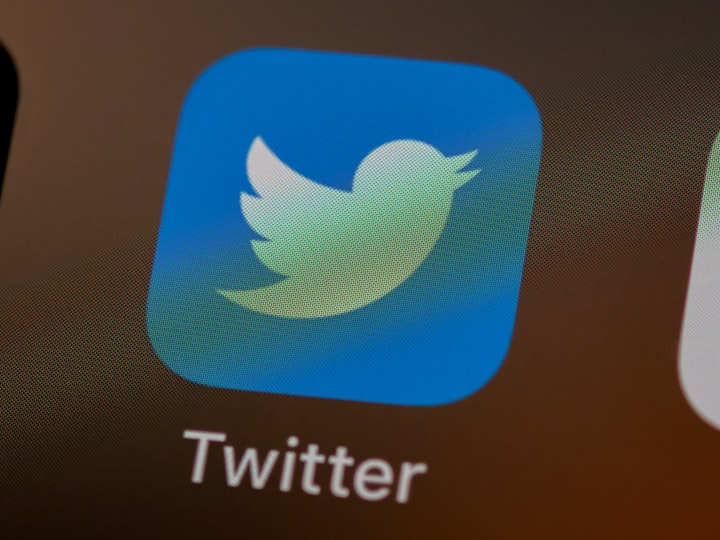
I've been seeing a lot of people posting on social media about alleged violations of their First Amendment rights.
"You can't force me to wear a mask. It's a violation of my first amendment rights!"
"Twitter is violating the President's first amendment rights by kicking him off the platform."
"You can't put me in Facebook jail for what I posted, I have first amendment rights!"
I have got bad news for you friends. This may blow your mind, but the truth is….the first amendment doesn't say anything about masks. It doesn't mention Facebook or Twitter. And it definitely does not mention anything about what a President or other elected official can say or do on social media.
Your "First Amendment Rights" are not what you think they are. They are not nearly as broad and all-encompassing as most people believe.
What is the First Amendment?
The first amendment is quite short and has very specific language, which I am sharing in its entirety.
"Congress shall make no law respecting an establishment of religion or prohibiting the free exercise thereof; or abridging the freedom of speech, or of the press; or the right of the people peaceably to assemble, and to petition the Government for a redress of grievances."
The First Amendment is one of the ten amendments to the Constitution known as "The Bill of Rights". The Bill of Rights was intended to address several specific concerns held by political groups who felt that the newly enacted Constitution did not do enough to protect Civil Liberties.
Let's be clear: this amendment to the Constitution specifically calls out what Congress cannot do. There is some court precedent that has extended these same restrictions to other parts of government, such as states, but that's it.
As the United States Supreme Court wrote in their opinion on the 1972 Chicago Police Department v Mosley case:
"But, above all else, the First Amendment means that government has no power to restrict expression because of its message, its ideas, its subject matter, or its content. […] To permit the continued building of our politics and culture, and to assure self-fulfillment for each individual, our people are guaranteed the right to express any thought, free from government censorship. The essence of this forbidden censorship is content control. Any restriction on expressive activity because of its content would completely undercut the "profound national commitment to the principle that debate on public issues should be uninhibited, robust, and wide-open."
It's also important to note that several types of speech are specifically excluded from free speech protections, even by the government. These include:
- Obscenity
- Fighting words
- Defamation (including libel and slander)
- Child pornography
- Perjury
- Blackmail
- Incitement to imminent lawless action
- True threats
- Solicitations to commit crimes including treason, sedition, or plagiarism
Does the First Amendment Apply to Non-Government Entities?
The answer to this is quite simple: no. The First Amendment only applies to the government.
There is nothing in the first amendment that says that a company needs to allow you freedom of speech.
Your employer does not have to give you freedom of speech.
Twitter or Facebook do not have to give you freedom of speech.
Your landlord does not have to give you freedom of speech.
The only freedom of speech any of us technically has is from the government. So, Twitter can tell you to stop sharing something they deem inflammatory or obscene, but it's a lot harder for the government to do it.
Private social media platforms, which by the way are voluntary and free of charge for you to use, can kick off who they want to kick off. They don't need a reason. Whether you agree or disagree with their decision is irrelevant. It's at their discretion.
Similarly, your employer has every right to monitor and terminate your employment if you post things online that they don't believe reflect well on their company. There are many stories of workers getting fired for something they posted on social media.
I know a woman who posted on Facebook that she wasn't "in the mood" to work and had been working on a personal project all day in her office. The next day she was fired, much to her consternation.
"But my Facebook is private!" she protested.
Not if your coworkers turn you in. Or if the police get a warrant.
This is playing out right now after the demonstration or insurrection (depending on your view) that happened at the Capitol last week. Many of the people who illegally entered the Capitol building proudly posted pictures on social media.
At least one was stupid enough to get his picture taken wearing his work ID badge. Honestly, it was like that guy was begging to get fired.
Firing people who participate in riots or illegal activity is pretty cut and dry if they work for a private company. It can be a little murky if they work for the government. If the ID badge guy worked for the city, for example, his rights might have been different.
What about mask requirements?
Many people have taken exception to mask mandates by state and local governments. Here again, the First Amendment does not apply.
Wearing a mask does not impede your ability to exercise freedom of speech, religion, or assembly.
Furthermore, there is no right or protection in the Constitution that inhibits jurisdictions or companies from requiring you to wear a mask.
In fact, the 10th Amendment specifically says that any power not specifically granted to the federal government by the Constitution becomes the purview of the states. Although the federal government can enact new laws, in general, public health response is left to the states to handle as they see fit.
Mask mandates are similar to other public health policies that have been enacted over the years, such as seatbelt laws, helmet laws, and vaccination requirements.
The Supreme Court has upheld the power of states to enact public health rules as they see fit. In a 1905 case called Jacobson v Massachusetts, the Court ruled that states could mandate that people get a smallpox vaccination.
In July 2020, a circuit court judge overseeing a case contesting mask mandates in Florida specifically cited the Jacobson v Massachusetts ruling and wrote:
"In every well-ordered society charged with the duty of conserving the safety of its members the rights of the individual in respect of his liberty may at times, under the pressure of great dangers, be subjected to such restraint, to be enforced by reasonable regulations, as the safety of the general public may demand."
As we move forward through what will no doubt be a tumultuous year, remember this: you may not like certain actions taken by the government or private companies, but that doesn't mean they are a violation of your First Amendment - or any other - rights.
About the Creator
Rose Bak
Rose Bak is a writer, author & yoga teacher who writes on a diverse range of topics. She is also a published author of romantic fiction. Visit Rose's website at rosebakenterprises.com or follow her on social media @AuthorRoseBak.






Comments
There are no comments for this story
Be the first to respond and start the conversation.